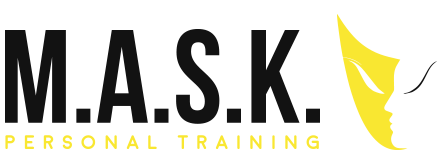Every day, client A excitedly checked her wearable’s data. Client B on the other hand, became increasingly stressed by his. They illustrate an important point: While trackers can be powerful tools, they can also backfire.
In todays post we are going to take a very quick glimpse at trackers, a few truths about trackers, who benefits from trackers and use of the data. At M.A.S.K. our preferred tracker system is MyZone (https://buy2.myzone.org/?lang=enGB&voucher=MASKUK001-75) for its simplicity and its usefulness with regards to heart rate training zones. However, no tracker is suitable for everyone.
Our advice…shop around, explore different tracker features then ask yourself what difference this will make to your exercise and nutrition habits.
Ok, on with the post 😊
The Power of Tracking
Tracking behaviour (like fruit instead of ice cream) or outcomes (like blood pressure) can show if habits are effective. But not everyone benefits equally from tracking.
5 Truths About Data Tracking
1. Different People, Different Reactions
Some thrive on data. Others take it personally, leading to anxiety. Those who see behaviours as chores or obligations are most vulnerable.
2. Data is Only Useful for Decision-Making
Tracking is only helpful if linked to action. Tracking just because a device allows it often leads nowhere.
3. Trackers Aren’t Always Accurate
Issues include:
- Distance: Over/underestimation depending on speed.
- Sleep Quality: Overestimates sleep, underestimates wake time.
- Calories Burned/Eaten: High margins of error (10–30%+).
4. Motivation is Temporary
New devices spark initial excitement that often fades within months due to novelty wearing off.
5. Data Can Demotivate
Pre-set goals (like 10k steps) can discourage those who consistently fall short, leading to feelings of failure.
Who Benefits (and Who Doesn’t)?
People Who Benefit from Lots of Data
- Numbers-oriented thinkers (engineers, accountants)
- Elite athletes or physique competitors
- Those who see data objectively, not personally
People Who Benefit from Some Data
- Have basic fitness goals (look/feel better)
- Can reframe setbacks positively
People Who May Be Harmed by Tracking
- Obsessive or anxious individuals
- Perfectionists or unrealistic goal-setters
- Those prone to overtraining or comparing themselves negatively

Helping Clients Use Data Effectively
1. Define Progress Clearly
Turn vague goals (“get strong”) into specific, value-tied objectives (“lift grandkids easily”).
2. Measure Actions, Not Identity
Focus on whether behaviours are done consistently rather than judging personal worth.
3. Emphasize Patterns, Not Single Data Points
Fluctuations are normal. Trends over time are what matter.
4. Alternative Tracking Methods
Use simple worksheets (sleep logs, food diaries, habit journals) instead of devices when needed.
5. If Needed, Adjust the Approach
- Collect data without clients seeing it.
- Try a two-week break from stressful tracking.
- Empower clients to choose alternative ways to measure progress.
Final Thought
As holistic coaches we always remember that what works for one might not work for another. We pride ourselves on meeting clients where they are at and we stay flexible, balanced, and client-centred at all times.
As always if you have any thoughts on todays post, we’d Love to hear from you. Have a truly fantastic week!
Until next time stay awesome!
Vanessa x


